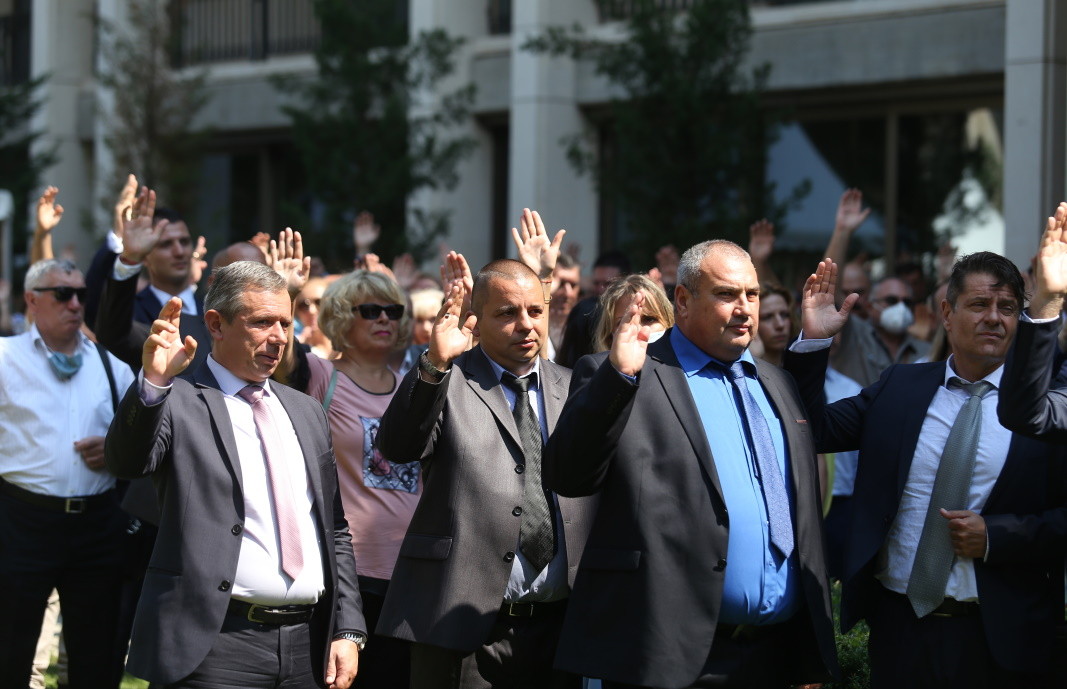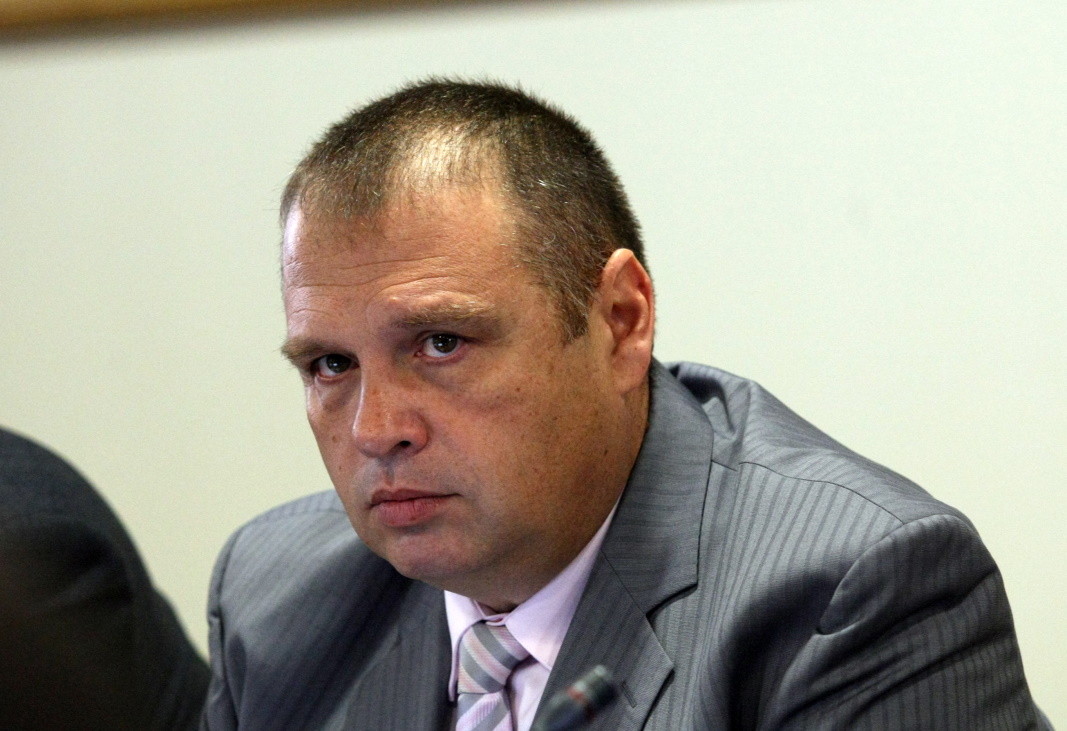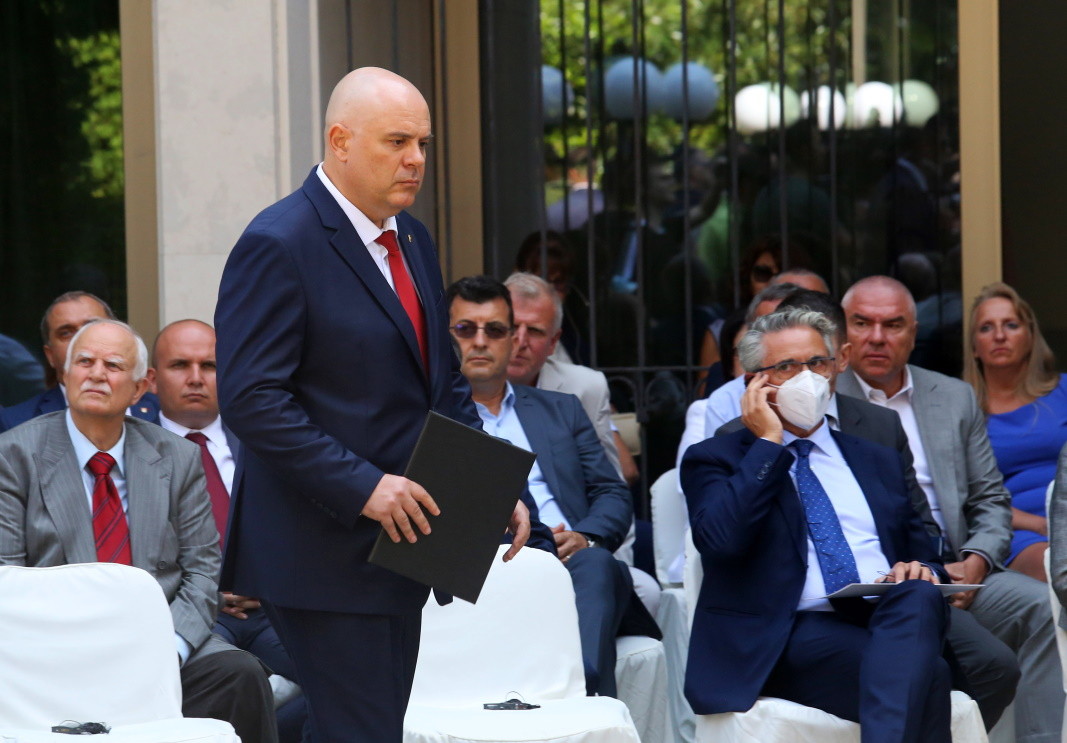Today, the ruling GERB party begins parliamentary consultations over convening Grand National Assembly, aimed at making changes to the state's major law. Constitutional reforms also envisage major changes in the judiciary, including reducing the term of office of the Prosecutor General from 7 to 5 years. Every six months the Prosecutor General would also present a report on the work of the state prosecution to MPs in a parliamentary hearing.
Yesterday, more than 700 Bulgarian prosecutors and investigators gathered at a national meeting and spoke out against interference in the independence of the prosecutor's office in Bulgaria. They said that attempts to interfere with the independence of the state prosecution, the violation of the separation of powers and calls by politicians for reform aimed at "making the prosecution dependent", were inadmissible.

"I have been a prosecutor for over 23 years. During that time the institution was constantly being reformed by almost all parties part of the country's government, as well as by many non-governmental organizations. Our constitution has been changed many times when it comes to the chapter on the judiciary. During all these years prosecutors and investigators have accepted and participated in attempts at change and reforms without expressing their views," Ognyan Damyanov, a member of the Supreme Judicial Council’s prosecutor board, said during the discussion and called on Bulgarian politicians to carry out reforms only after a sensible debate during which the best decisions could be made.
In his speech, Chief Prosecutor Ivan Geshev was firm that double standards would not be allowed - "ones for people with billions, having political and media influence, and others - for ordinary Bulgarians", as has been the practice for decades, and added that the problem with telephone frauds has been resolved, while thefts and robberies in the country have decreased by more than 20% in the first five months of this year, BNR reporters informed.

"The presence of criticism, expression of opinions or proposals for the work of the prosecution cannot be considered as something wrong, or an attempt to interfere in the work of the prosecution. Criticism and proposals are based on assessment of the accumulation of certain weaknesses and problems in the work of the state prosecution and the goal is to overcome them," professor of European law at Sofia University "St. Kliment Ohridski” Assoc. Prof. Hristo Hristev, commented in an interview with BNR. He said that it was possible that the prosecutor's office was afraid of questioning its independence, but if we are really looking for problems in the functioning of the rule of law in this country, they were elsewhere. It remains to be seen whether there are risks to the independence of courts and judges, because of the current way of functioning of the prosecution, its place in the judiciary and its ability to influence the work of the judiciary through the Supreme Judicial Council. Furthermore, if we assumed that the place of the prosecution was in the judiciary, we must ask ourselves whether there were sufficient guarantees for the independence of individual prosecutors to be able to apply the law in unaffected manner, given the current structure and management.

According to Dimitar Markov, legal expert at the Center for the Study of Democracy, “the state has done everything necessary to ensure independence of the prosecution under the constitutional framework. Even at the moment, the main criticism against the prosecution is that this independence is growing into unaccountability, which is not according to the spirit of the Constitution and the democratic order in the country... The independence of the judiciary does not mean that they could do whatever they want. In an interview with BNR, the expert commented that the prosecution meeting gave a signal to all parties that would take part in the upcoming constitutional debate that the prosecutor's office stood united and did not want to change the status quo.
English: Alexander Markov
Photos: BGNESNearly a month after the 27 October early parliamentary elections, the 51st National Assembly is still not able to begin its work because MPs are unable to elect their first among equals. Bulgaria's political impasse is compounded by burning concerns..
DPS-New Beginning MP Yordan Tsonev said in an interview with BNT that no one has requested support from their party for the election of National Assembly Speaker. Yordan Tsonev criticized We Continue the Change- Democratic Bulgaria for violating a..
''If the Constitution is not amended, there is no point in holding another election under the same rules and with the same bought, controlled and corporate vote'', the co-chairman of the parliamentary group of BSP-United Left Borislav Gutsanov said in..

+359 2 9336 661
